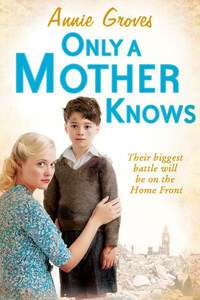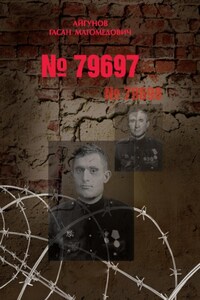Published by HarperCollinsPublishers Ltd 1 London Bridge Street London SE1 9GF
www.harpercollins.co.uk
Published by HarperCollinsPublishers 2008
Copyright © Annie Groves 2008 Annie Groves asserts the moral right to be identified as the author of this work
A catalogue record for this book is available from the British Library
This novel is entirely a work of fiction. The names, characters and incidents portrayed in it are the work of the author’s imagination. Any resemblance to actual persons, living or dead, events or localities is entirely coincidental.
All rights reserved under International and Pan-American Copyright Conventions. By payment of the required fees, you have been granted the non-exclusive, non-transferable right to access and read the text of this e-book on-screen. No part of this text may be reproduced, transmitted, down-loaded, decompiled, reverse engineered, or stored in or introduced into any information storage and retrieval system, in any form or by any means, whether electronic or mechanical, now known or hereinafter invented, without the express written permission of HarperCollins.
Ebook Edition © September 2008 ISBN: 9780007283736
Version: 2017-09-12
I would like to thank the following for their invaluable help:
Teresa Chris, my agent.
Susan Opie, my editor at HarperCollins.
Yvonne Holland, whose expertise enables me ‘not to have nightmares’ about getting things wrong.
Everyone at HarperCollins who contributed to the publication of this book.
My friends in the RNA, who as always have been so generous with their time and help on matters ‘writerly’.
Tony, who as always has done wonders researching the facts I needed.
ONE
Saturday 19 August 1939, Wavertree, Liverpool
‘Come on, you four. Hurry up, otherwise we’re going to miss the ferry and then we’ll be late. And don’t forget your gas masks,’ Jean Campion called up the stairs to her son and daughter.
She exhaled a small sigh of relief mixed with irritation when she heard her daughter Grace calling back down, ‘Just finishing putting the ribbons in the twins’ plaits, Mum.’ This was followed by the thumping of her son, Luke’s, size tens on the landing.
‘Stop worrying, love,’ her husband chided her mildly. ‘We’ve got a good hour yet before we need to be there, although why that sister of yours can’t bring her family over here to Wavertree to celebrate your birthdays for once I don’t know.’
‘Vi’s always liked putting on a bit of a show,’ Jean reminded her husband with a small smile.
‘Doing a bit of a show-off, more like,’ Sam grumbled. ‘Doesn’t she realise that folks have got better things to do, with the country on the brink of war?’
Jean put down her handbag and went over to him, putting her hand on his arm.
Sam worked for the Liverpool Salvage Corps, a unit of skilled tradesmen originally set up by the city’s insurance companies. The Salvage Corps specialised in recovering goods from, and minimising the losses at, commercial premises damaged by fire and ‘other perils’.
The Salvage Corps worked closely with Liverpool’s Fire Brigade, and there had been many evenings over this last year when Sam had had to attend meetings and exercises to help prepare the Salvage Corps for the important role it would have to play if war was declared. As well as working for the Salvage Corps, both Sam and his son, Luke, like so many others determined to do their bit, had signed up for part-time Air-Raid Precautions duties with their local ARP post, and the year had been busy with preparations for a possible war with a shower of information leaflets from the Government covering everything from the evacuation of children from cities, to the sandbagging of vulnerable buildings; the making of blackout coverings to ensure that no buildings showed lights that could be used by night-time enemy bombers seeking a target; the building of air-raid shelters and a dozen more precautions.
War! The threat of it lay across the whole country like a dark shadow that everyone had been hoping would go away. Now they could hope no longer, Sam said. Not with the Munich crisis and everything.
Every garden seemed to have cultivated an air-raid shelter, and for those who didn’t have the space to build one, there were the public shelters. Everyone had got used to the sight of ARP wardens; ARP warden posts, the Territorial Army Reservists doing their drills, and every housewife had fretted and complained about fitting blackout-fabric-covered frames to their windows at night.














